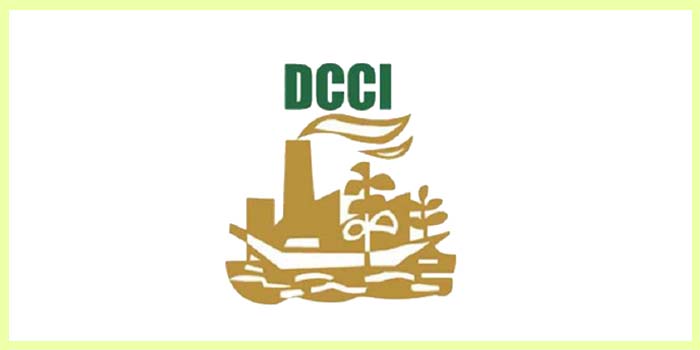
Better connectivity between India & Bangladesh to boost bilateral trade: DCCI
 Dhaka Chamber of Commerce and Industry (DCCI) has observed that better connectivity between India and Bangladesh will boost bilateral trade.
Dhaka Chamber of Commerce and Industry (DCCI) has observed that better connectivity between India and Bangladesh will boost bilateral trade.
The chamber made the observation at a seminar on "Improved Connectivity: Unlocking Economic Potential between India and Bangladesh" held at Le Meridien Hotel in the city, said a press release.
High Commission of India in Dhaka and DCCI jointly organized the seminar. Adviser to the Prime Minister on Economic Affairs, Government of Bangladesh Dr Mashiur Rahman was present as the chief guest.
In his speech, Dr Mashiur Rahman said in terms of export and import we may think using local currencies for our bilateral trade.
"At present, the investment environment in Bangladesh is very friendly therefore he invited more Indian companies to invest here in Bangladesh either in the form of joint ventures. In terms of railway connectivity, few development projects like construction of Jamuna railway bridge is under progress which will create an ample opportunities for bilateral trade," he added.
The adviser also requested to consider the issue of anti-dumping duty on raw jute export from Bangladesh.
He also underscored the importance of seamless transshipment of Bangladeshi products through India.
Dr Mashiur also urged that easy visa process is needed for smooth communication of businessmen of both countries.
DCCI President Barrister Md Sameer Sattar said that the bilateral trade between Bangladesh and India is US$16 billion in FY2022.
But there are scopes to expand the bilateral trade to minimum $20 billion through addressing non-tariff barriers and connectivity related challenges, he added.
He also referred World Bank's report that seamless transport connectivity of India and Bangladesh has the potential to increase national income by 17 percent in Bangladesh and 8 percent in India.
India High Commissioner in Dhaka Pranay Verma said smooth connectivity is crucial for boosting trade and commerce between our two countries.
He said that land routes, railways and even waterways between Bangladesh and India can be expanded more.
During the last decade, the bilateral trade between Bangladesh and India remarkably increased and he opined that comprehensive economic partnership agreement (CEPA) could be a game changer for both the countries in terms of trade and commerce.
Stronger connectivity is the driving force for economic prosperity, Pranay Verma noted.
Infrastructure development of seven land customs stations is under progress that will help boost both-way trade, he added.
The Indian envoy also mentioned that currently seven border haats are being operated but in future this number will be increased.
Officials from the Indian High Commission made the presentation on connectivity initiatives between India and Bangladesh.
The presentation highlighted that 40 percent trade is happening through land ports of which 70 percent is happening through Benapol-Petrapol land port.
In the last five years bilateral trade has been doubled and during the last three years Bangladesh's export to India has been doubled.
They also underscored on developing inland waterways, coastal shipping, air and railway connectivity. Northeastern region of India is potential for Bangladesh to do more business.
India's access to use Mongla and Chattogram port is beneficial both for Bangladesh and India. After completion of India-Bangladesh pipeline, 1 million metric ton diesel per year can be transported to Bangladesh, they added.
DCCI Senior Vice President S M Golam Faruk Alamgir (Arman) gave the closing remarks.
BSS
Copyright © 2026 Sunbd24. All rights reserved.